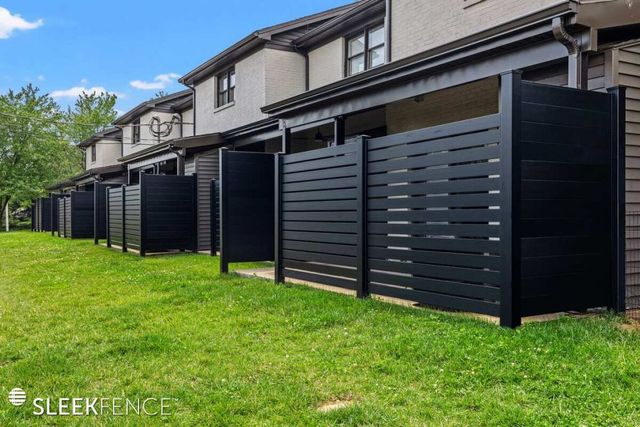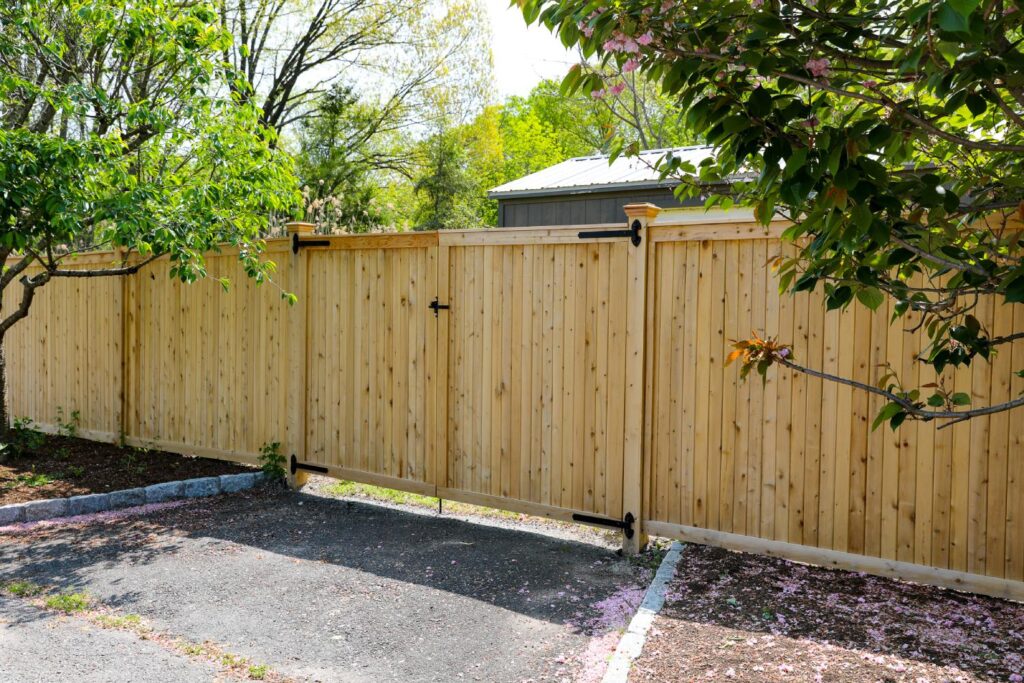All Categories
Featured

When preparing to mount a fence around your residential or commercial property, among the initial steps is recognizing the allowing needs in your location. While the procedure might appear straightforward, local laws can differ greatly relying on where you live. Protecting the appropriate permits prior to beginning the installation is vital to stay clear of possible fines, disputes with next-door neighbors, or also having to eliminate your fencing. Right here's what you require to recognize regarding obtaining the necessary permits for your fence installation.
Why Do You Need an Authorization for a Fencing? A license is usually required for fencing installations to ensure conformity with neighborhood building regulations, zoning regulations, and safety and security regulations. Allowing aids neighborhood authorities maintain uniformity in community visual appeals, security, and environmental factors to consider. It also makes certain that the fence does not interfere with energy lines or public spaces, and that it abides by elevation and border constraints.

Typical Permits Required for Fencing Installment. Structure Authorization. A lot of locations need a building license for fence setup, particularly if the fence goes beyond a specific height (usually over 6 feet) or is made from non-standard products. This license guarantees that your fencing adheres to regional building ordinance. In some locations, the structure division will check the site to ensure that the fence satisfies safety and structural criteria.
Zoning License. Zoning permits are designed to make sure that your fence sticks to neighborhood zoning laws, including setbacks from property lines, easements, and rights-of-way. Zoning regulations differ from city to city, and sometimes, your fence might need to be held up a certain variety of feet from the pathway or road. A zoning permit might likewise be necessary if your fence is in a historical area or various other specifically designated areas.

Fencing Authorization. In some places, a particular "fencing authorization" may be required. Some cities restrict chain-link fences in front yards or have details regulations for personal privacy fencings.
HOA Authorization. If your home is part of a homeowners association (HOA), you might need authorization before mounting a fence. HOA standards commonly consist of specific rules concerning the type, height, shade, and materials for fencings to preserve the neighborhood's looks. HOA policies can be more stringent than city codes, so always inspect their guidelines prior to progressing.
Easement or Utility Licenses. If your fence will be near or throughout an easement (such as an energy easement), you may need to get permission from the utility business or other entities that regulate the land. This is especially important if you plan to mine fence blog posts, as it ensures you will not harm underground energies like power, gas, or water lines.
Exactly How to Discover What Permits Are Needed. The ideal method to establish which licenses are necessary for your fence installment is to call your neighborhood building department or community workplace. They can offer you with details information regarding demands in your location. Right here are a couple of steps you can require to learn:
Check the City or Region Web site: Numerous city governments give details about fencing installation permits online. Try to find building or zoning sections on their internet site. Call or Check Out City Government Offices: If the details is not conveniently offered online, calling or checking out the local office in individual can clarify what's needed. Seek Advice From an Expert Specialist: If you're overloaded or unsure by the process, a neighborhood contractor or fence installment business can assist in browsing the allowing process, as they're acquainted with regional policies. What Takes place If You Don't Get a Permit? In many areas, you can deal with fines, and your fence might be ordered to be removed. Permitting ensures that your fence is compliant and helps avoid future problems.
Conclusion. Before setting up a fence around your home, it's important to inspect whether an authorization is called for in your area. Building authorizations, zoning permits, HOA authorization, and utility consents may all contribute in your fencing installment procedure. Making the effort to research study and acquire the needed permits will not only guarantee that you're complying with neighborhood laws, however also help safeguard your financial investment and maintain the honesty of your home.
Latest Posts
Uncover the Top Auto Repair Deals in Montclare, Chicago
Published en
1 min read
Discover Brake Repair & More: Comprehensive Auto Care Solutions from Montclare Auto Repair
Published en
1 min read
Explore Your Financial Partner at WyHy – Top Benefits for Your Financial Goals
Published en
1 min read
More
Latest Posts
Uncover the Top Auto Repair Deals in Montclare, Chicago
Published May 25, 25
1 min read
Discover Brake Repair & More: Comprehensive Auto Care Solutions from Montclare Auto Repair
Published May 25, 25
1 min read
Explore Your Financial Partner at WyHy – Top Benefits for Your Financial Goals
Published May 23, 25
1 min read